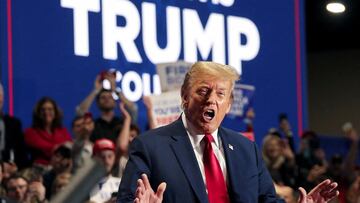Reactions to the Supreme Court’s decision to keep Trump on the ballot
The United States Supreme Court rules in favor of Trump and keeps him on the ballot. Reactions from across the political spectrum.

The debate surrounding whether Donald Trump should be allowed on the Colorado ballot for the presidency in November, due to his involvement in the Capitol insurrection, has ended (for now). On 4 March, the US Supreme Court reversed the Colorado Supreme Court’s decision in favor of the former president, allowing him to remain on the ballot in the state and signaling that similar efforts in other states will likely fail.
The Supreme Court, through a unanimous decision, argued that states do not have the right to remove a candidate from the ballot, as it is a decision that belongs to Congress—before this ruling, Colorado, Maine, and Illinois had decided to exclude the Republicans from their respective ballots, citing Section 3 of the 14th Amendment. This section states that no official who has taken an oath to serve in public office can run again if they have participated in acts of insurrection or rebellion.
Reactions to the Supreme Court decision
The court has ruled regarding Trump’s appeal in the Colorado case. This decision has set a precedent at the federal level, which means that no state in the country will have the right to remove the Republican from its ballots unless Congress has approved previous legislation. Given this, Donald Trump celebrated the Court’s ruling by pointing out that the decision represents a “great victory for America.”
🇺🇸 | AHORA: Donald Trump reacciona en su red social (Truth Social), a la decisión de la Corte Suprema de Justicia: "Gran victoria para los Estados Unidos". pic.twitter.com/tOMjdALTpP
— UHN Plus (@UHN_Plus) March 4, 2024
For her part, the Secretary of State of Colorado, Jena Griswold, was aware of the highest court's decision by expressing her disappointment via social networks:
“I am disappointed in the U.S. Supreme Court’s decision stripping states of the authority to enforce Section 3 od the 14th Amednemtn for federal candidates,” adding that “Colorado should be able to bar oath-breaking isrrection[ists] from our ballot.”
I am disappointed in the U.S. Supreme Court’s decision stripping states of the authority to enforce Section 3 of the 14th Amendment for federal candidates. Colorado should be able to bar oath-breaking insurrections from our ballot.
— Jena Griswold (@JenaGriswold) March 4, 2024
Following the ruling, the executive director of the Maine Republican Party, Jason Savage, applauded the court’s decision and threatened to seek to replace his Secretary of State, Shenna Bellows, who had ruled that the former president was not eligible to appear on the ballot Maine.
Related stories
The Republican Governor of South Dakota, Kristi Noem, noted that the Court fulfilled its duty to “act swiftly and unanimously to restore law and order and protect the right of the American people to elect their president.”
SCOTUS did their duty. They acted swiftly and UNANIMOUSLY to restore law and order and protect the right of the American people to choose their President.
— Kristi Noem (@KristiNoem) March 4, 2024
On the contrary, Mario Nicolais, a lawyer for the Colorado plaintiffs, attacked the Court by highlighting the “cowardice” of its decision: “I hope that the cowardice of the court today does not lead to an outpouring of blood tomorrow.” In general, reactions have been ambivalent, with Democrats criticizing the ruling and Republicans applauding it.

Complete your personal details to comment